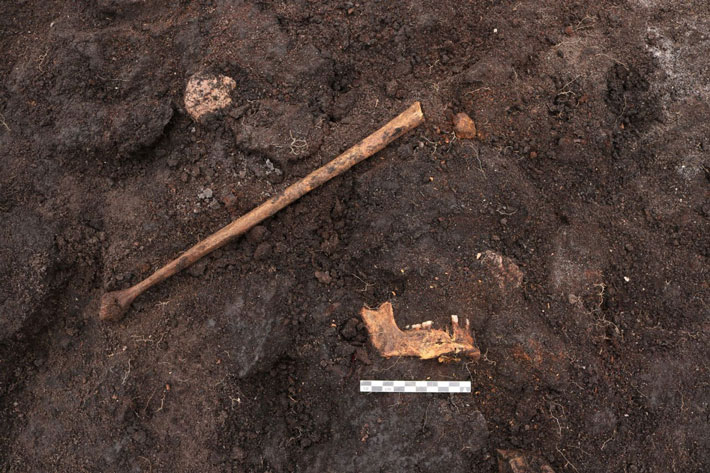 STENLØSE, DENMARK—Live Science reports that human and animal bones, as well as an unpolished flint ax head, were recovered from what was once a bog on Denmark’s island of Zealand during an investigation conducted before a construction project. The style of the ax suggests that the bones date to the early Neolithic period, more than 5,000 years ago, according to Emil Struve of the ROMU museums. “We know that traditions of human sacrifices date back that far—we have other examples of it,” he said. The human remains include leg bones, a pelvis, and part of a lower jaw with some teeth still attached. The rest of the body probably lay outside the protective layer of peat and was not preserved. Examination of the pelvis and teeth may yield information about the person’s age and sex. Struve and his colleagues plan to conduct a full excavation of the site in the spring. To read about canine remains found in a Danish bog, go to "Denmark's Bog Dogs."
STENLØSE, DENMARK—Live Science reports that human and animal bones, as well as an unpolished flint ax head, were recovered from what was once a bog on Denmark’s island of Zealand during an investigation conducted before a construction project. The style of the ax suggests that the bones date to the early Neolithic period, more than 5,000 years ago, according to Emil Struve of the ROMU museums. “We know that traditions of human sacrifices date back that far—we have other examples of it,” he said. The human remains include leg bones, a pelvis, and part of a lower jaw with some teeth still attached. The rest of the body probably lay outside the protective layer of peat and was not preserved. Examination of the pelvis and teeth may yield information about the person’s age and sex. Struve and his colleagues plan to conduct a full excavation of the site in the spring. To read about canine remains found in a Danish bog, go to "Denmark's Bog Dogs."
Bog Body Discovered in Denmark
